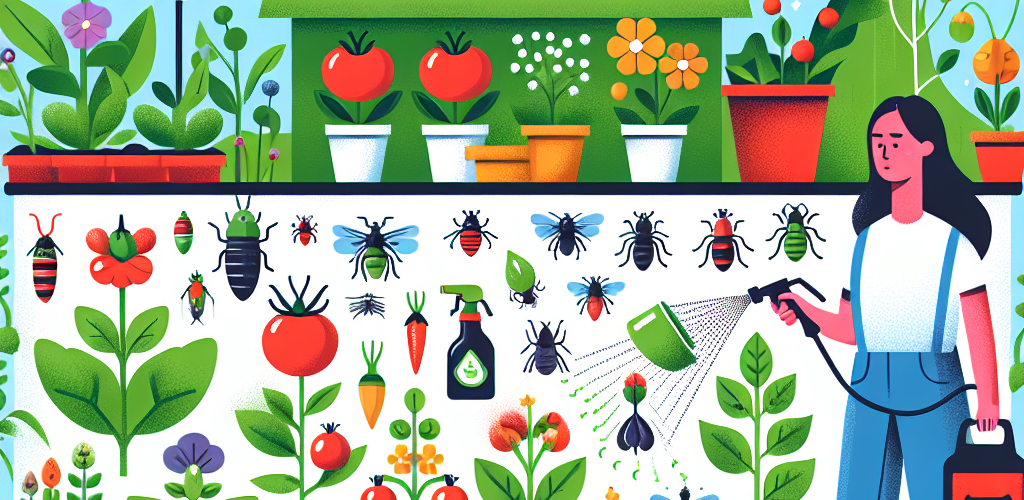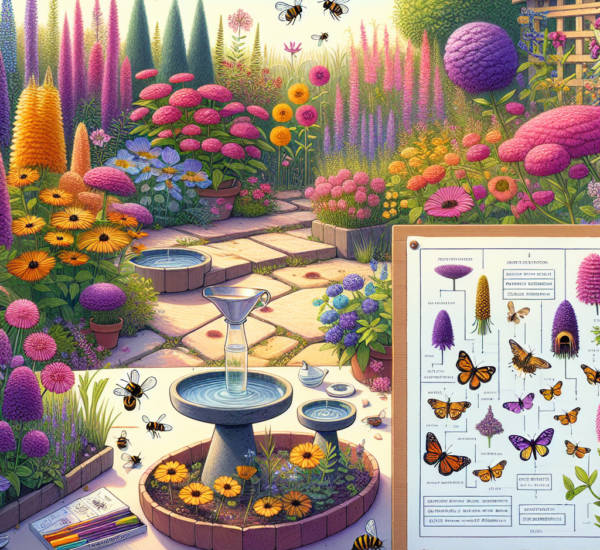Looking to protect your home garden naturally without harming the environment? Dive into our comprehensive guide on organic pest control solutions. Discover safe, effective, and eco-friendly practices to keep your garden thriving.
Introduction
Gardening is not only a rewarding hobby but also a way to ensure safer food consumption. However, tackling pests without resorting to harmful chemicals poses a challenge. In this guide, we’ll introduce you to organic pest control solutions that enhance your garden’s health without compromising the environment. By employing these methods, you can maintain a balanced ecosystem, promote biodiversity, and keep your home garden flourishing naturally.
Understanding Organic Pest Control
Organic pest control refers to the use of environmentally friendly techniques to manage and eliminate garden pests. Unlike conventional methods that rely heavily on chemical pesticides, organic solutions aim to protect plants using natural means. This approach not only reduces the ecological footprint but also ensures a safe environment for humans and wildlife. By focusing on prevention and natural deterrents, organic methods create a sustainable gardening practice.
Top Organic Pest Control Strategies
Companion Planting
Companion planting is a technique where certain plants are grown together to enhance growth and repel pests. For instance, vegetables like tomatoes benefit from being planted alongside basil and marigold, which deter aphids and whiteflies. Understanding the right plant combinations can significantly enhance natural pest resistance.
Try rotating crops with different plant families each season; this disrupts pest breeding cycles and promotes soil health.
Attracting Natural Predators
Introduce or encourage beneficial insects such as ladybugs, spiders, and predatory beetles in your garden. These natural predators can keep pest populations in check efficiently. Providing habitats like flowering border plants or insect hotels can boost their presence.
Homemade Pest Control Sprays
Create your own pest repellents using simple household ingredients. Solutions like neem oil, garlic spray, and diatomaceous earth can effectively manage pests without toxicity. These solutions are not only affordable but also easy to prepare and apply.
Learn more about creating homemade sprays from this reliable guide.
Using Organic Pesticides
Consider using organic-certified pesticides as a last resort. Products containing insecticidal soaps or bacteria like Bacillus thuringiensis (Bt) target specific pests without harming beneficial insects or the environment. Always follow label instructions for the best results.
Implementing Physical Barriers
Employ barrier methods such as row covers, nets, or copper tape to physically prevent pests from reaching your plants. These barriers are highly effective in protecting crops from insects and larger animals without the need for chemical interventions.
Benefits of Organic Pest Control
Adopting organic pest control methodologies not only safeguards the ecosystem but also offers numerous advantages:
- Healthier Plants: Organic methods often result in more resilient plants that can naturally fend off diseases and pests.
- Environmental Protection: These methods reduce soil and water pollution, fostering a healthier planet.
- Cost-Effectiveness: Many organic solutions can be made at home with minimal costs, saving money on commercial pesticides.
- Long-term Benefits: Supporting biodiversity and soil health creates a sustainable garden ecosystem.
Learn more about the benefits of organic gardening.
Conclusion
Incorporating organic pest control solutions in your home garden not only nurtures your plants but also contributes to a more sustainable ecosystem. By implementing strategies like companion planting, utilizing natural predators, and using homemade sprays, you can effectively manage pests without harming the environment. Embrace these practices for a thriving, chemical-free garden that reflects a health-conscious and environmentally friendly lifestyle.
FAQ
- Q1: What are the most effective organic pest control methods?
- A1: Effective methods include companion planting, attracting natural predators, using homemade sprays, organic pesticides, and physical barriers.
- Q2: Can organic pest control be as effective as traditional methods?
- A2: Yes, when applied correctly, organic methods can be highly effective and offer benefits without the environmental drawbacks of chemicals.
- Q3: How can I encourage beneficial insects in my garden?
- A3: Plant a variety of flowering plants, provide habitats like insect hotels, and avoid using broad-spectrum pesticides.
- Q4: Are homemade pest sprays safe for all plant types?
- A4: Generally, yes, but it’s wise to test on a small area first to ensure there are no adverse reactions.




